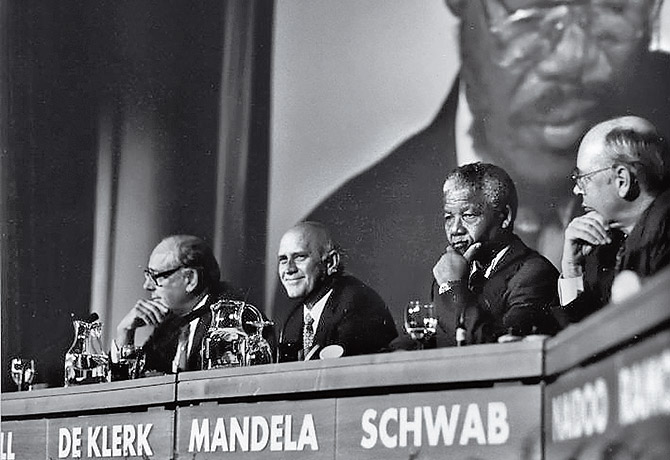Part of the story about companies, even individuals, being able to compete with states on large-scale projects–the Space Race 2.0, the eradication of infectious diseases, etc.–is the progress of our tools. Their increase in power and decrease in cost have leveled the playing field to some degree. But the world is still not flat. It requires billions to get into these games.
The other side of the narrative is that soaring wealth inequality, the signs of capitalism run amok, has enabled these nations of one, something more independent and rouge-ish than oligarchs. The new arrangement has allowed super-rich kids to purchase Vancouver apartments like they were postcards. More importantly, it’s allowed the few to acquire outsize influence.
That’s not to deride the more progressive megarich among us, the exceptions to the rule, even if a system that allows such unevenness is largely bad. Bill Gates, in his avuncular, sweater-clad 2.0 iteration, has done amazing work for the world. Elon Musk has directed his sizable ego mostly in the direction of enabling a cleaner Earth and a multi-planet species. Russian billionaire Yuri Milner’s micro-mission to Alpha Centauri is laudable. You can argue if some of these projects are the best immediate uses of resources, but there is a sense of generosity among these moonshots.
Nicolas Berggruen, a German-American billionaire, has been both a conspicuous consumer and philanthropist. He’s used some of his bankroll to establish a lavish Davos of sorts, an interdisciplinary Los Angeles parlor for discussion about important topics, including, amusingly, equality. The opening of Alessandra Stanley’s well-written profile of the think-tank tinkerer:
In a wood-paneled conference room in Stanford, Calif., a score of scholars, many of them eminent and some from as far away as Johannesburg and Beijing, gathered last month to compare philosophical notions of hierarchy and equality.
The gathering itself had no overt hierarchy, though one participant seemed a little more equal than the others. When Nicolas Berggruen spoke, no one interrupted. Only he occasionally checked his phone. And at dinner, the guests received fruit tarts for dessert — except for Mr. Berggruen, who was served chocolate mousse.
Mr. Berggruen, 54, is an investor and art collector who was once known as the “homeless billionaire” because he lived in itinerant luxury in five-star hotels. Now he is grounded in Los Angeles where he presides over a bespoke think tank, the Berggruen Institute.
The institute is a striking example of how wealthy philanthropists are reshaping the landscape with smaller versions of the foundations established by Bill Gates and George Soros. Sean Parker, one of the entrepreneurs behind Napster and Facebook, has a research institute, The Parker Foundation, which this month pledged $250 million for cancer immunotherapy. He is also a co-founder of the Economic Innovation Group, which labels itself an “ideas laboratory.” Tom Steyer, who made his fortune as a hedge fund manager in California, has several environmental nonprofit groups, and last year created the Fair Shake Commission to redress economic inequality.
“There is a generation of new donors who have huge assets, and their own ideas, and think traditional think tanks are old-fashioned,” said James G. McGann, the director of the Think Tanks and Civil Societies Program at the University of Pennsylvania — a think tank that thinks about think tanks. In a money-fueled culture where tweets, not position papers, shape the national conversation, these kinds of philosopher-kingpins “are likely to be more influential than we are,” Mr. McGann said.•

